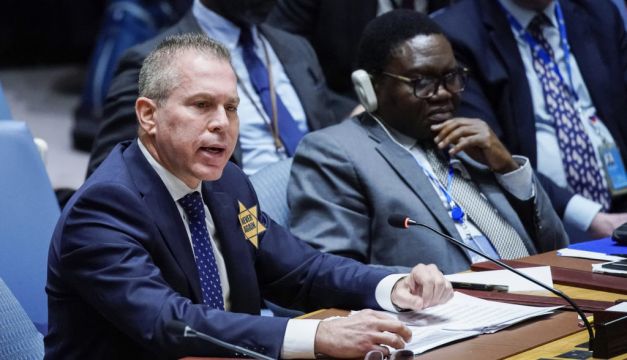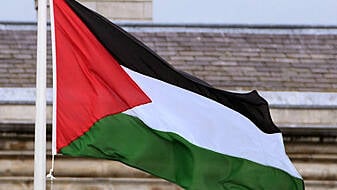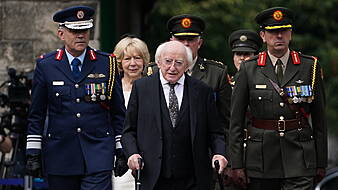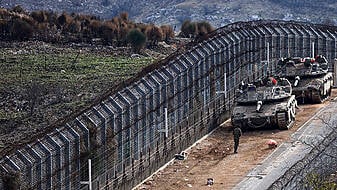The head of the UN agency for Palestinian refugees told a UN emergency meeting “an immediate humanitarian ceasefire has become a matter of life and death for millions”, accusing Israel of “collective punishment” of Palestinians.
Philippe Lazzarini warned that a further breakdown of civil order following the looting of the agency’s warehouses by Palestinians searching for food and other aid “will make it extremely difficult, if not impossible, for the largest UN agency in Gaza to continue operating”.
Briefings to the Security Council by Mr Lazzarini, the head of the UN children’s agency Unicef, and a senior UN humanitarian official, painted a dire picture of the humanitarian situation in Gaza 23 days after Hamas’s surprise October 7 attacks in Israel, and its ongoing retaliatory military action aimed at “obliterating” the militant group, which controls Gaza.
According to the latest figures from Gaza’s Ministry of Health, more than 8,300 people have been killed – 66 per cent of them women and children – and tens of thousands injured, the UN humanitarian office said.
Unicef executive director Catherine Russell said that toll includes over 3,400 children killed and more than 6,300 injured.
“This means that more than 420 children are being killed or injured in Gaza each day – a number which should shake each of us to our core,” she said.
Mr Lazzarini said: “This surpasses the number of children killed annually across the world’s conflict zones since 2019. This cannot be collateral damage.”
Many speakers at the council meeting denounced Hamas’s October 7th surprise attacks on Israel that killed over 1,400 people, and urged the release of some 230 hostages taken to Gaza by the militants.
But virtually every speaker also stressed that Israel is obligated under international humanitarian law to protect civilians and their essentials for life including hospitals, schools and other infrastructure – and Israel was criticised for cutting off food, water, fuel and medicine to Gaza and cutting communications for several days.
Mr Lazzarini said “the handful of convoys” allowed into Gaza through the Rafah crossing from Egypt in recent days “is nothing compared to the needs of over 2 million people trapped in Gaza”.
“The system in place to allow aid into Gaza is geared to fail,” he said, “unless there is political will to make the flow of supplies meaningful, matching the unprecedented humanitarian needs”.
US ambassador Linda Thomas-Greenfield urged the divided Security Council – which has rejected four resolutions that would have responded to the October 7th Hamas attacks and the ongoing war – to come together, saying “the humanitarian crisis in Gaza is growing more dire by the day”.
Stressing that all innocent civilians must be protected, she said the council must call “for the immediate and unconditional release of all hostages, address the immense humanitarian needs of Palestinian civilians in Gaza, affirm Israel’s right to defend itself from terrorism, and remind all actors that international humanitarian law must be respected”.
She reiterated US President Joe Biden’s calls for humanitarian pauses to get hostages out and allow aid in, and for safe passage for civilians.
Israel’s UN ambassador Gilad Erdan was sharply critical of the council’s failure to condemn Hamas’s attacks and asked members: “Why are the humanitarian needs of Gazans, the sole issue, the sole issue you are focused on?”
Recalling his grandfather who survived Nazi death camps but whose wife and seven children perished in the Auschwitz gas chamber, Mr Erdan told the council he will wear a yellow star – just as Hitler made his grandfather and other Jews wear during the Second World War – “until you condemn the atrocities of Hamas and demand the immediate release of our hostages”.
The ambassador then put a large six-pointed yellow star of David saying Never Again on his suit jacket, as did other Israeli diplomats sitting behind him, and said: “We walk with the yellow star as a symbol of pride, a reminder that we swore to fight back to defend ourselves. Never again is now.”
Riyad Mansour, the Palestinian UN ambassador, also urged the Security Council to end its paralysis, and demand “an end to this bloodshed, which constitutes an affront to humanity, war crimes, and crimes against humanity, and a clear and imminent danger for regional and international peace and security”.
He said: “Save those who still can be saved and bury in a dignified manner those who have perished.”







